Occupational Therapists Improve Daily Life
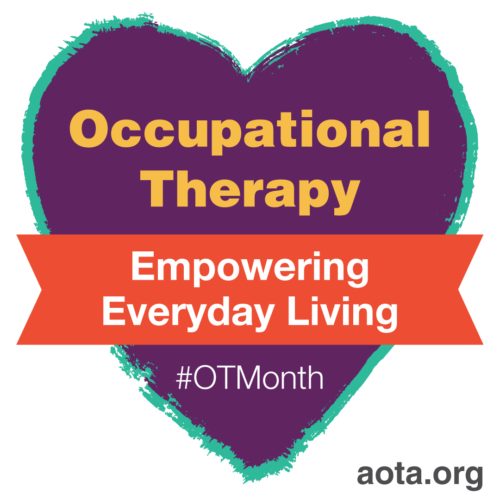
April is national Occupational Therapy Month. Occupational therapy (OT) is a profession that touches many lives, using a variety of methods to help improve daily life. An occupational therapist (OT) meets the client where they are, carefully crafting their approach to best serve each unique individual.
A common misconception about occupational therapy is that it is only utilized to recover from an accident or injury to help people return to work. However, the word “occupation” refers to any daily activity a person hopes to accomplish out of necessity or personal fulfillment. This can be work, play, hobbies, or being active in general. The occupation of living is truly what OTs are focused on improving for their clients.
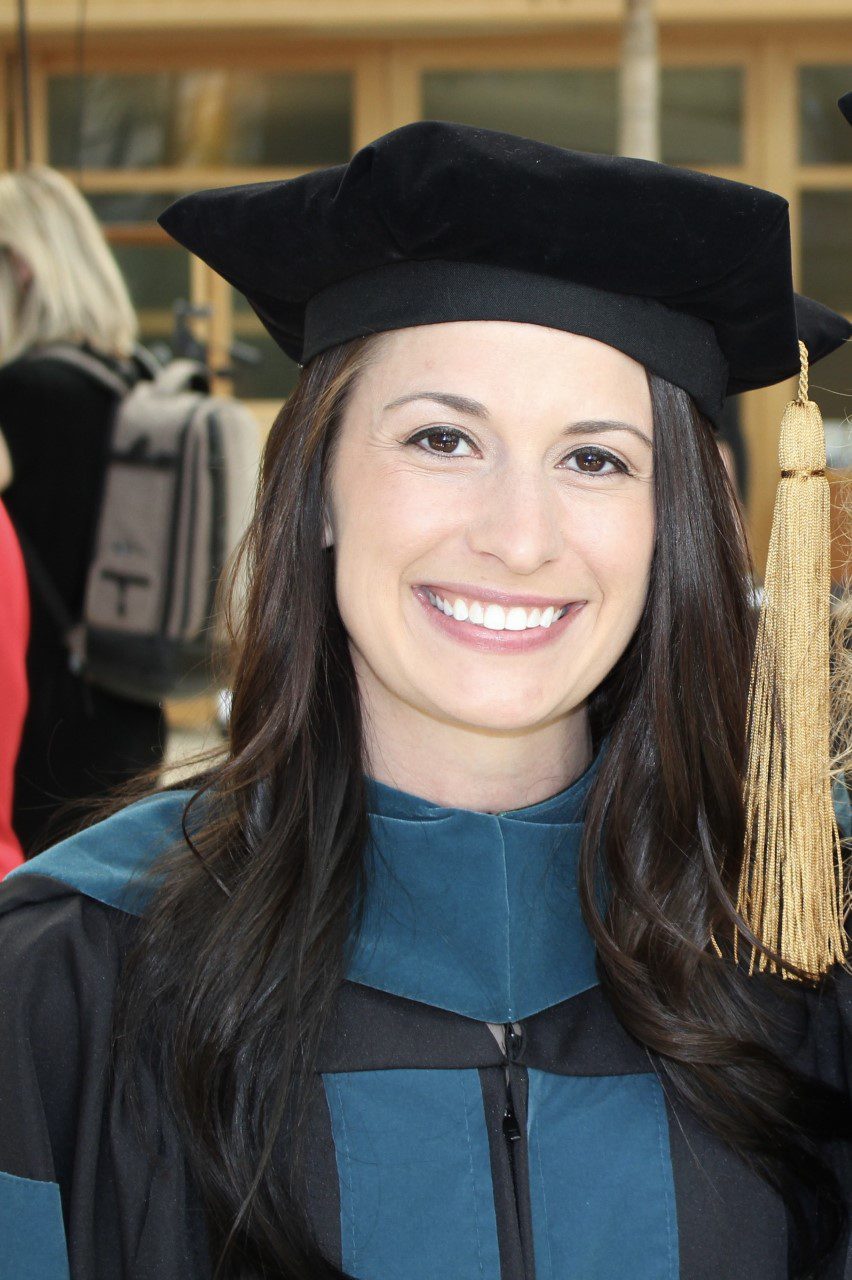
Amber Byrd, OTD is an OT at Kettering Health NeuroRehab and Balance Center. She also teaches Assistive Technology in the occupational therapy doctoral (OTD) program at Kettering College. She explains, “OTs assist clients across the lifespan to increase their engagement and independence in everyday life activities they want or need to perform.”
Rhonda Davis-Cheshire, OTD is an associate professor in our OTD program and says that being an OT is unique in that it “utilizes interventions to specifically support occupational participation and engagement as the primary means of supporting health and wellness.”
She explains, “OTs provide intervention that can include modification, adaption, advocacy, restoration, or the establishing of skills to help increase a person’s ability to participate in their chosen daily activities. Overall, OTs support a person’s health and wellness by increasing their quality of life.”
Professor Byrd is an alumna of the Kettering College OTD program and now enjoys a fulfilling career as an OT. Her daily work with people varies in how she assists them in ways specific to their needs. Among others, here are some examples of what she can encounter on a daily basis in her career as an OT:
- Evaluating clients with mobility needs for custom manual and complex power wheelchairs to enable independence in their home and community
- Performing clinical driving evaluations for beginner drivers with different abilities or drivers returning to driving after an injury, or older drivers wanting to continue driving
- Conducting home evaluations and making recommendations for accessibility and fall prevention
- Working with clients with neurological diagnoses to rehabilitate upper extremities
- Addressing neuro and vestibular-related vision deficits
- Working on improving cognitive skills
- Assisting clients to improve activities of daily living (ADLs) such as self-care, cooking, and home management
- Helping clients find ways to improve their health management, sleep, and participation in school, work, and leisure activities
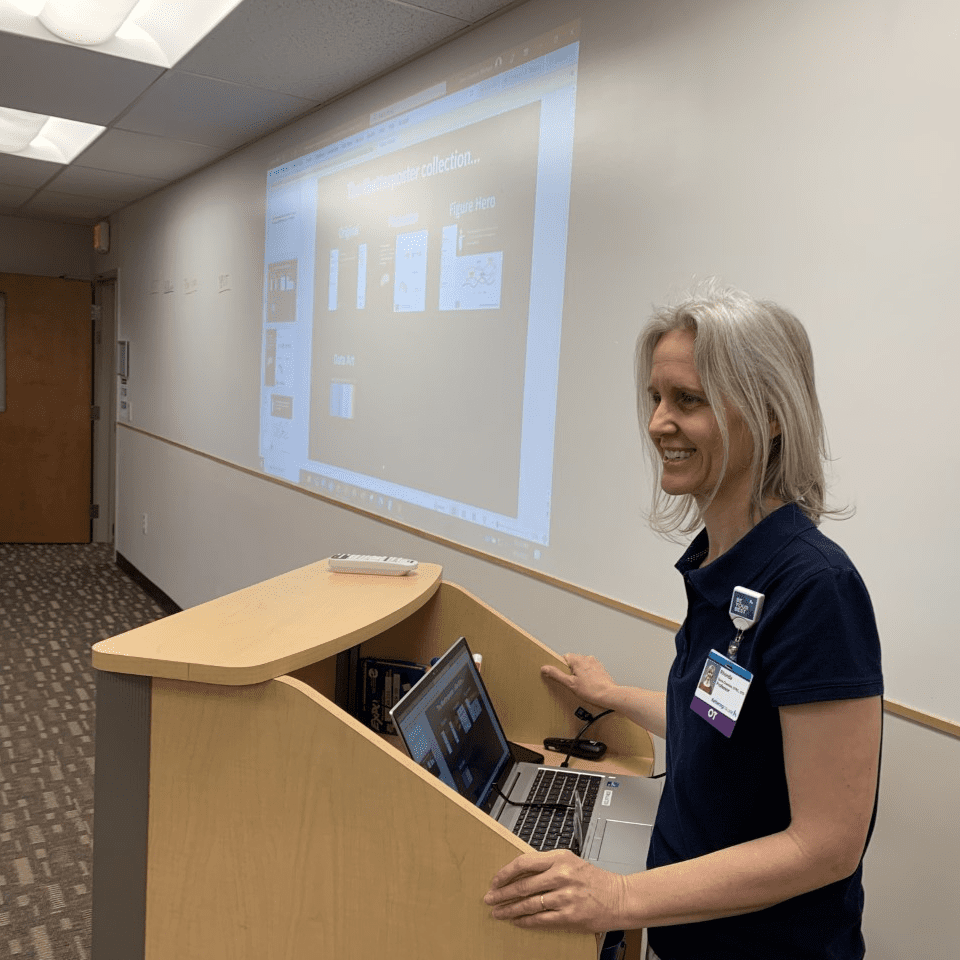
(Photo Courtesy of Mary Kay Cobb)
The overarching goal of an OT is to either practice skills with a client or help them learn new and adaptive ways to perform them, including the use of adaptive devices.
The positive results of occupational therapy have a far-reaching impact on people of all ages and abilities. The professors agree it is a highly rewarding, engaging career that offers the chance to help countless people. Professor Davis-Cheshire says, “There are a variety of settings and populations occupational therapy practitioners can serve which makes the profession one that has limitless opportunities for professional development and challenge.”
Professor Byrd recounts a specific client whose progress was especially gratifying. She says, “One of my most rewarding moments was watching a client with a cervical spinal cord injury drive her power wheelchair for the first time after receiving it and hearing that she was able to pick up her child from school independently.”
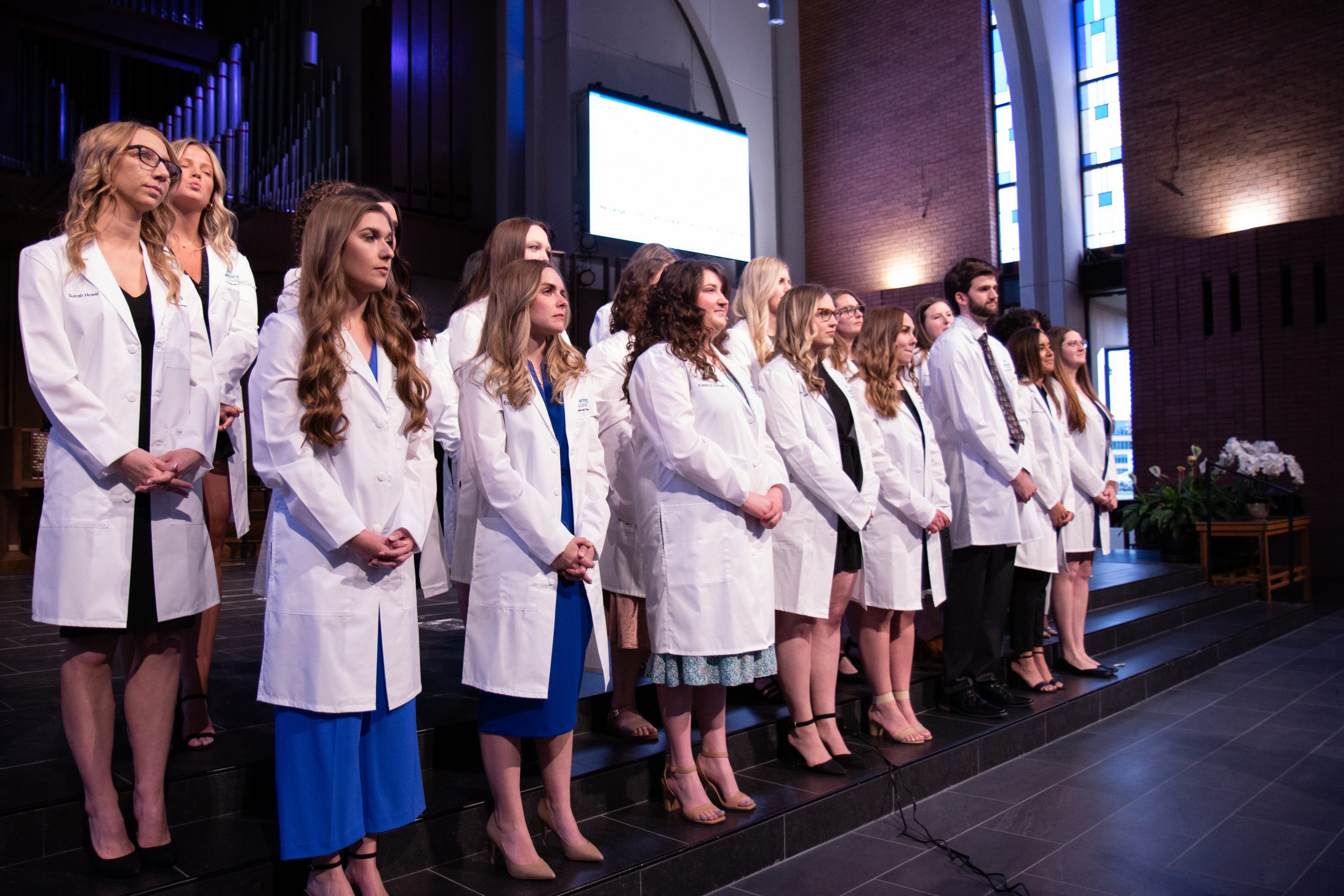
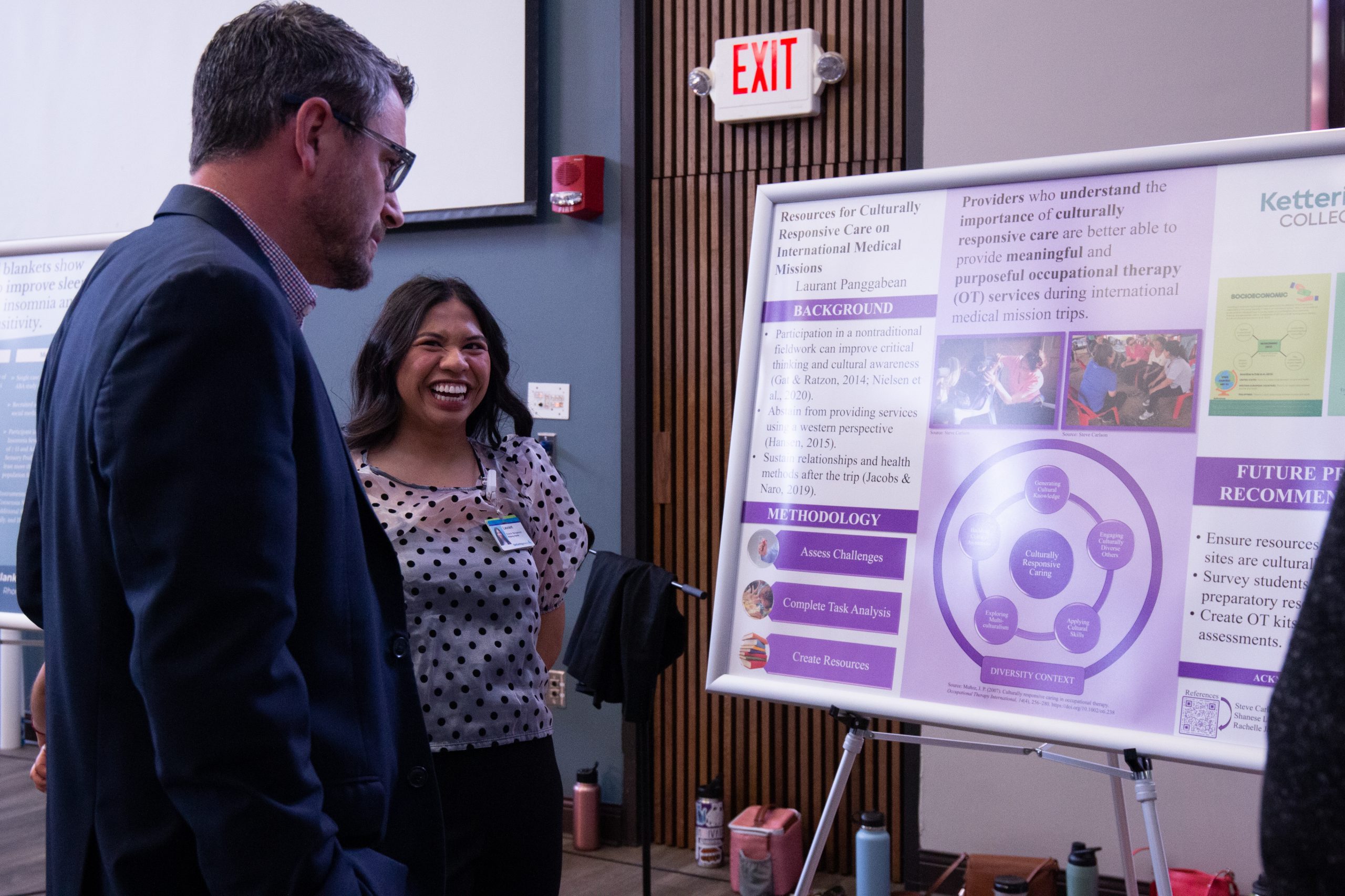

Kettering College is proud of our prestigious OTD program and the dedicated students who graduate from it and enter careers in a variety of healthcare settings as OTs. Professor Davis-Cheshire says, “Our program is blessed by a faculty that is diverse in their experiences, clinical backgrounds, and education. The team has a shared desire to support the development of excellent healthcare professionals who strive to serve others.”
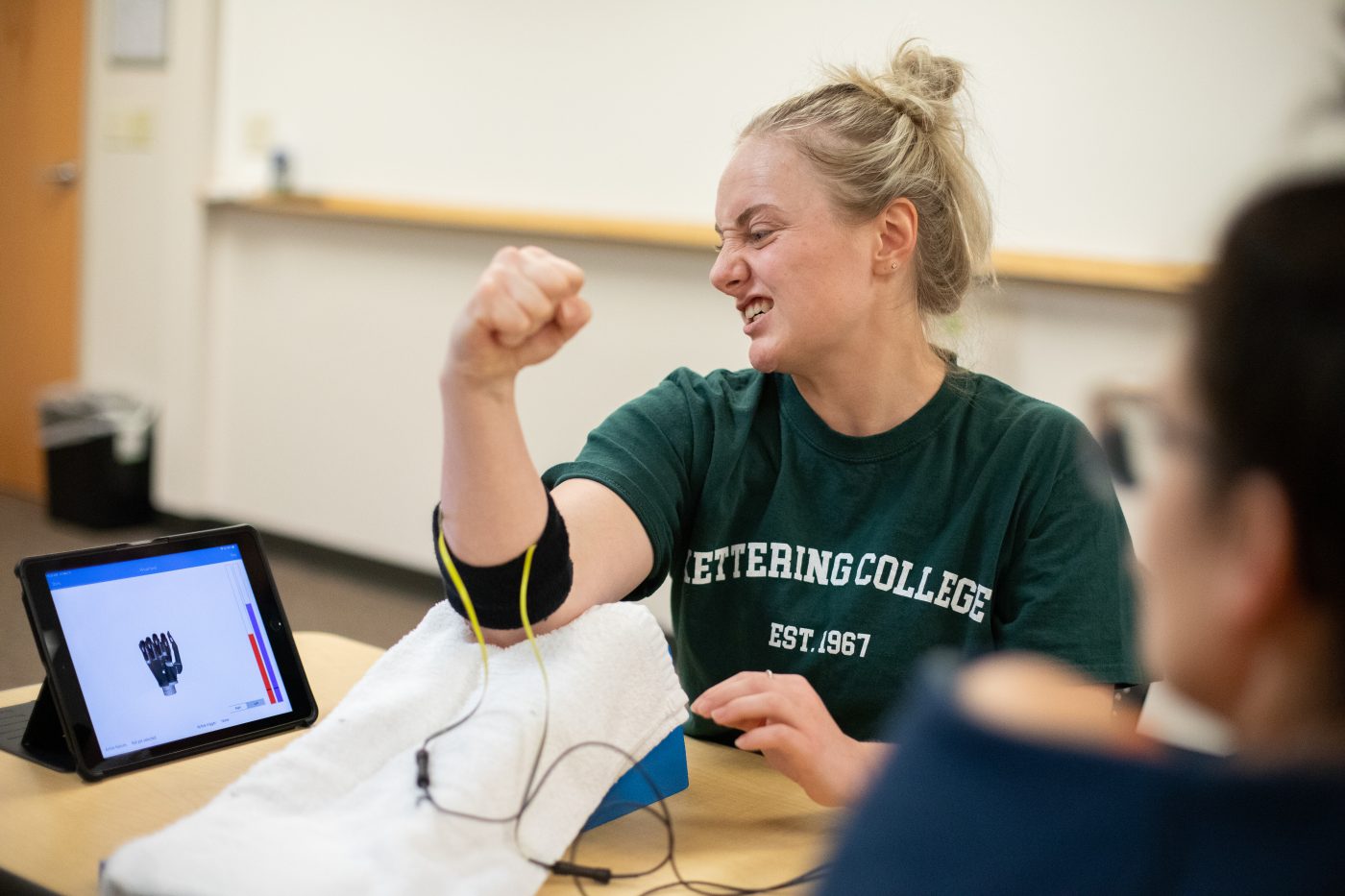
Professor Byrd can attest to the student experience as well as the faculty experience. She says, “I was a student in Kettering College’s inaugural OTD class and now have the opportunity to teach adjunct for the program. We have wonderful, qualified professors with amazing clinical experience to share with students. The program has small cohorts that feel like family while offering great resources and opportunities as a student and a new clinician.”
She continues, “As a Kettering College student I had an amazing placement in Kettering Health and continued mentoring as a new grad. From there, having an OTD opened opportunities for me to teach, become involved in research, participate on the Alumni board, and present at the national level.”
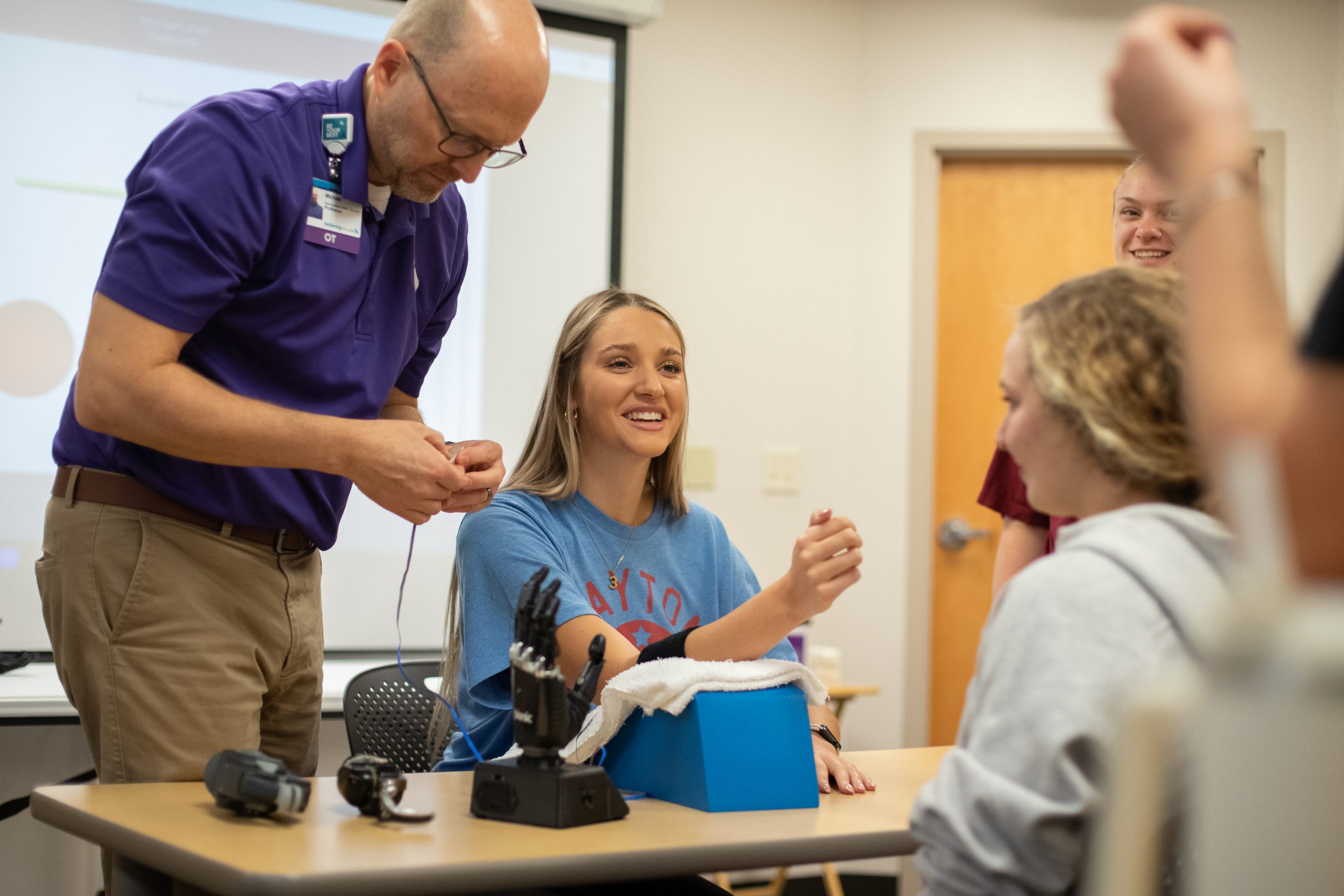

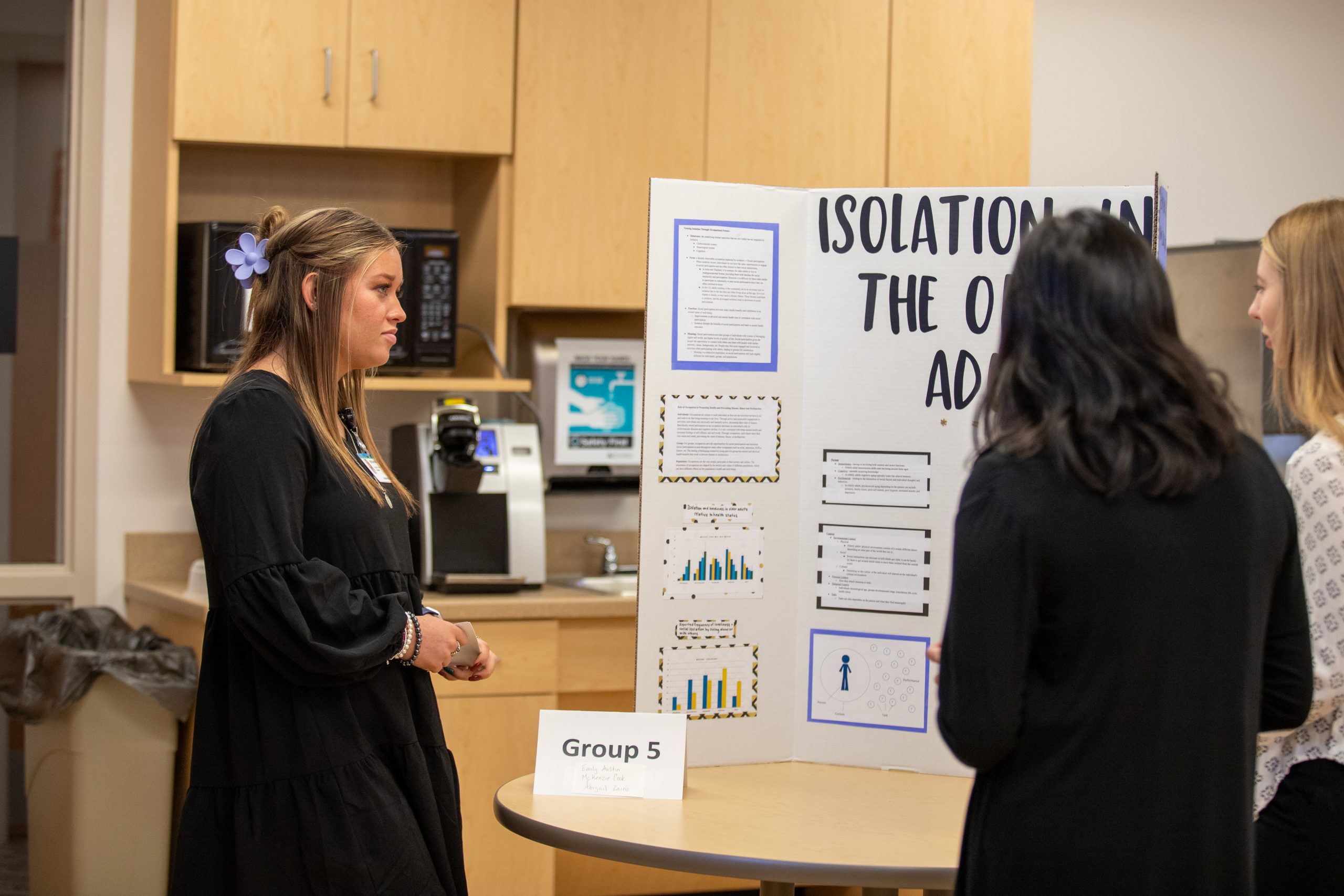
No matter the ability or goals of a person, an OT is armed with the knowledge, creativity, and empathy to assist. OT is a profession that focuses on each person’s unique individuality and environment and strives to empower each person to live each day feeling a sense of autonomy and accomplishment.
Thank you to all the OTs who work so hard to lift others up by helping them feel like themselves again. This is no small gift, and we acknowledge you, especially during this Occupational Therapy Month.
Print This Page